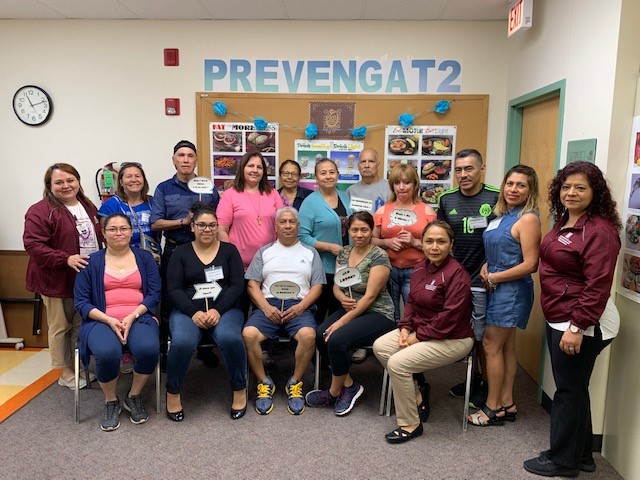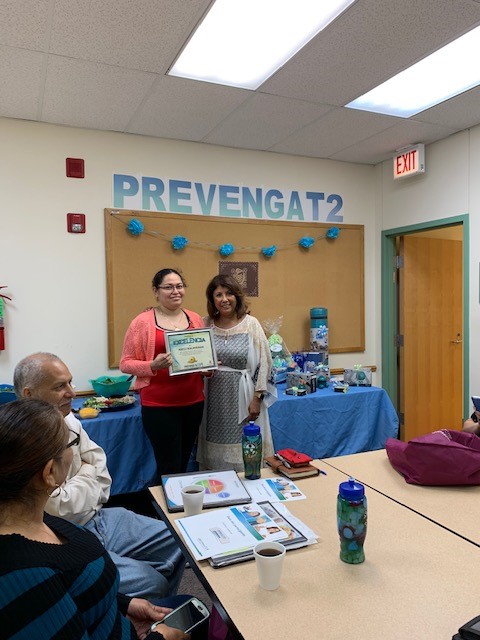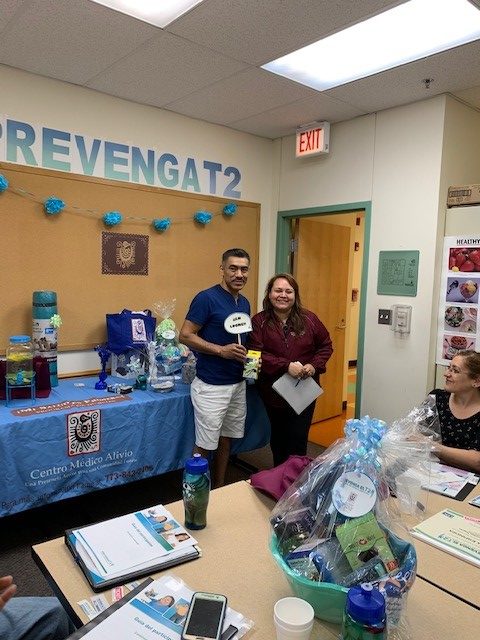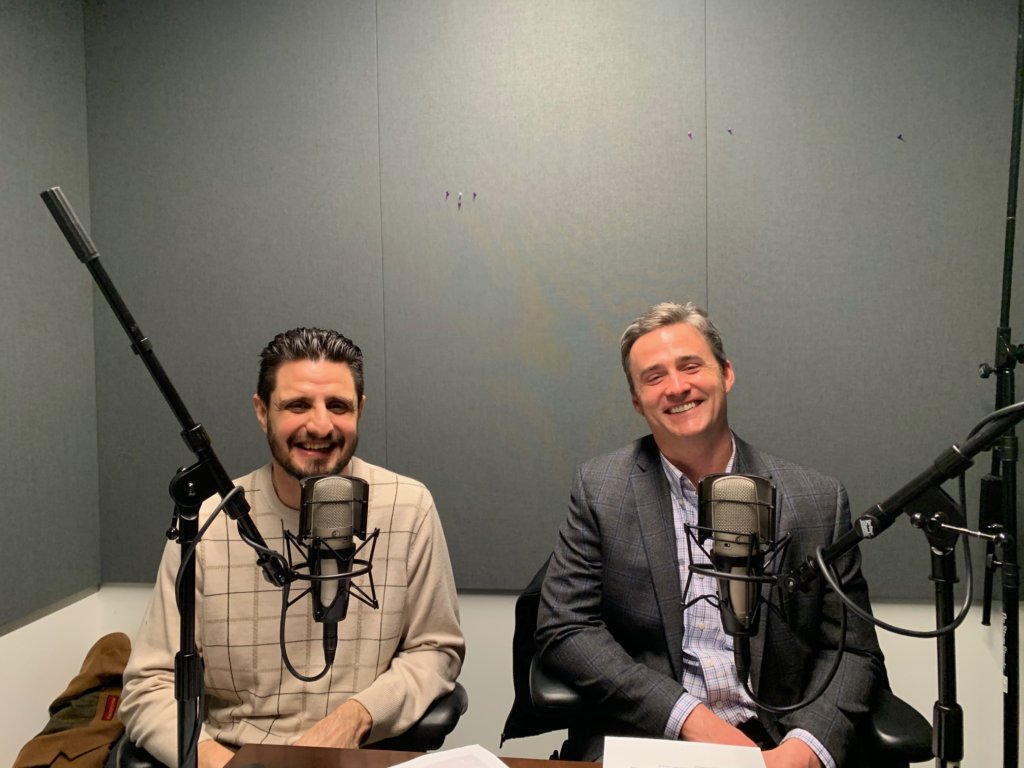Community health centers are well-positioned to help Latinos prevent diabetes

By Stephanie Presch, Content Specialist, UnidosUS
One in four Latinos will develop type 2 diabetes in their lifetime. This sobering fact is driving Alivio Medical Center, a Federally Qualified Health Center (FQHC) and UnidosUS Affiliate in Chicago, Illinois to deliver the National Diabetes Prevention Program (National DPP) a lifestyle change program, in their community. The funding for the program comes from the American Association of Diabetes Educators (AADE) under their 1705 Cooperative Agreement with the Centers for Disease Control and Prevention (CDC).
Keep up with the latest from UnidosUS
Sign up for the weekly UnidosUS Action Network newsletter delivered every Thursday.
Sue Vega, Get Covered Illinois and Senior Programs Manager at Alivio, views Alivio’s work with the program as crucial for the health and well-being of the Latino community in Chicago and at large.
“Diabetes is a big problem in our community,” Vega explains. “There are risk factors that are not within our control, but there are also risk factors that are within our control—mainly lifestyle.”
The CDC’s National DPP is a year-long structured lifestyle change program that encourages healthy approaches to physical activity, practice culturally informed healthy eating, learn stress management strategies, and develop realistic positive health behaviors that can be maintained long-term. The National DPP also helps the community access nutrition education and learn how to make their dollars go further at the supermarket or local tiendita (English/Spanish).
Alivio serves a dozen communities, the majority of which are predominantly Latino and from Mexico. The organization runs three major comprehensive health centers, as well as three clinics in local schools. They provide a wide range of medical and health care services, including ob-gyn, pediatrics, and specialty care. This year, they’re celebrating 30 years of quality health care service to their community.

Even before Alivio was involved in the National DPP, the health center was working on programs to help people understand appropriate nutrition choices and how to make their dollars last longer when buying healthy food and preparing meals for the entire family.
However, having access to the National DPP helps Alivio make diabetes prevention a formal and integrated part of the health care services provided.
Vega explains that the medical staff at Alivio want to make sure that people understand the risk factors associated with type 2 diabetes to reduce the risk of developing it in the future. This commitment translates to Alivio’s medical staff’s active role in referring patients into the program—sending approximately 50%.
Vega adds that identifying and attracting fully bilingual and bicultural staff health professionals to work at Alivio can be a challenge. “We’re going to need more of these professionals than are in the pipeline right now,” Vega explains.
This makes the National DPP an invaluable and complimentary asset to Alivio because the lifestyle coaches that run the entire 12-month program do not have to be doctors or nurses. AADE has trained Alivio’s promotores de salud—trusted members of the community who have the knowledge and understanding of the language, culture, and health behaviors common in Latino populations—as lifestyle coaches. “The lifestyle coaches are from the communities, so they’re really well aware of what challenges are for the community,” Vega adds.
As a result, Alivio’s clients have access to people who know and understand the challenges and opportunities that exist within their community and are key drivers of the program’s success.
“They’re not seen as people who are giving you advice without knowing what you’re up against,” Vega explains.
Members of the community are also well-equipped to understand differences between Mexican and American cultures, and how tradition and family can play an important role in managing pre-diabetes.

Alivio has already experienced some early successes with the National DPP. For the two cohorts of group participants they have had thus far, their program has boasted a 70% retention rate.
“There was a significant reduction in A1C results for a number of people and also significant weight loss that they could attribute to the program,” Vega notes, adding that they will continue to monitor participant progress every three months for an entire year.
“The majority of participants in the National DPP groups have successfully reached their goals to lose weight and thus reduce their risk of developing diabetes,” Vega adds, and cited examples of two people who participated in the program. One woman in the program has lost 30 lbs in the first four months since beginning the program. She has stated how grateful she is for the information and support she has received in the group. In a recent visit to her doctor, her A1C level had lowered to a normal level. This same provider had referred her to the National DPP program because she was within the pre-diabetes range.
Another of Alivio’s program participants successfully reduced his risk of developing diabetes by losing 22 Ibs. This participant is very happy because not only has the program helped him reduce his risk, but also the rest of his family (wife and children), who faithfully attend Alivio’s weekly meetings. The participant and his family have implemented healthy changes in their eating habits and physical activity, which has improved their family dynamic. As a result, they enjoy spending time together and sharing physical activities.
Community health centers (also known as FQHCs), such as Alivio Medical Center, are well-positioned to deliver the program in a way that is both linguistically and culturally relevant to their communities and offer a much-needed health service in their communities—one which can create a healthier, more productive workforce and can help manage health care costs by preventing or delaying the onset of type 2 diabetes. Organizations also benefit from becoming a National DPP provider as it is a covered health benefit eligible for Medicare reimbursement and can aid the provider’s recognition as a patient-centered medical home. Many organizations could potentially become National DPP providers, and UnidosUS is working to ensure those most at risk, including Latinos, have knowledge of and access to this evidence-based lifestyle change program.
To learn more about UnidosUS’s partnership with the AADE, you can read some of our previous stories on the subject. You can also find more information about the work that we do with the National DPP on our website.


